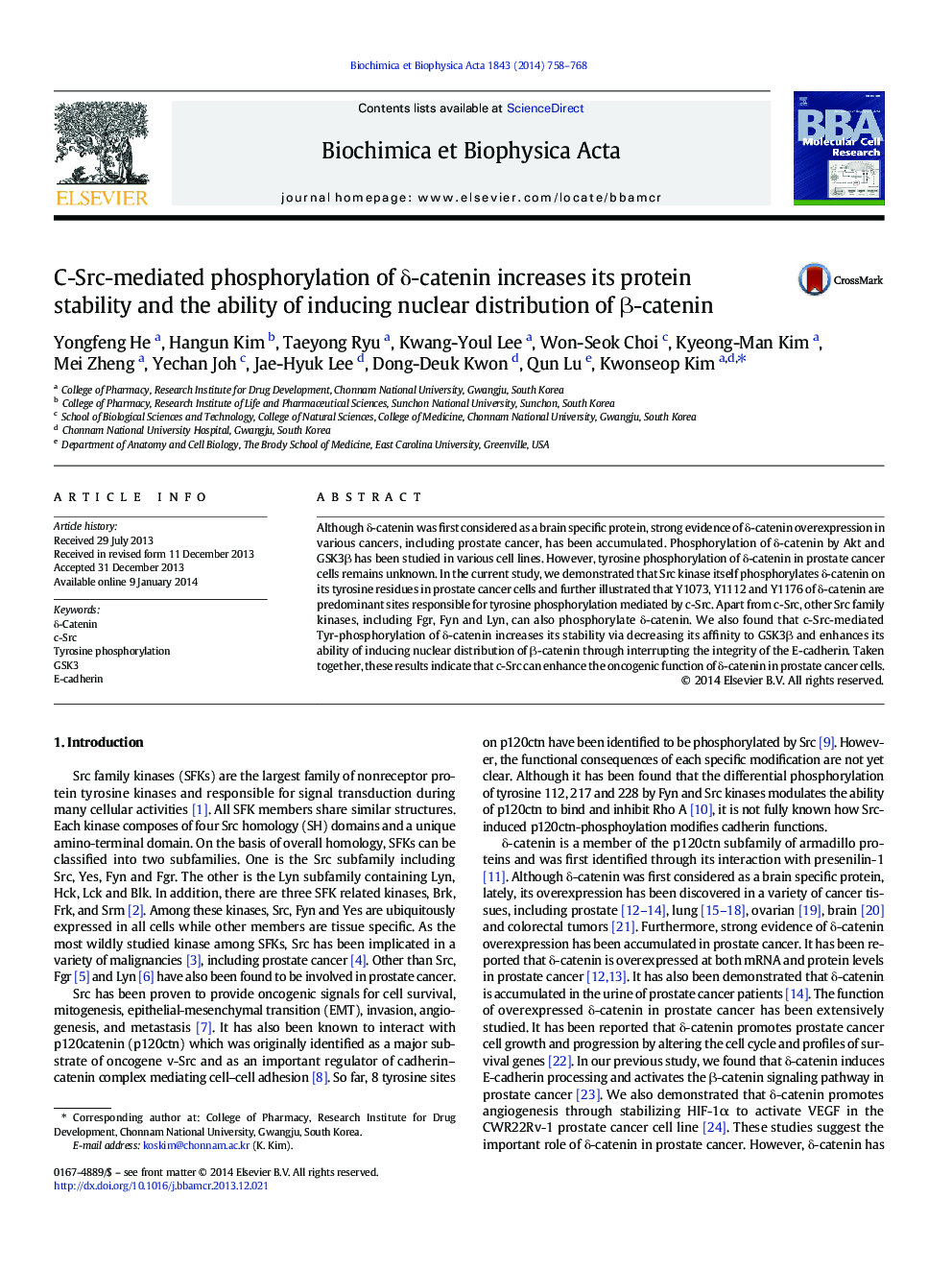| Article ID | Journal | Published Year | Pages | File Type |
|---|---|---|---|---|
| 10802072 | Biochimica et Biophysica Acta (BBA) - Molecular Cell Research | 2014 | 11 Pages |
Abstract
Although δ-catenin was first considered as a brain specific protein, strong evidence of δ-catenin overexpression in various cancers, including prostate cancer, has been accumulated. Phosphorylation of δ-catenin by Akt and GSK3β has been studied in various cell lines. However, tyrosine phosphorylation of δ-catenin in prostate cancer cells remains unknown. In the current study, we demonstrated that Src kinase itself phosphorylates δ-catenin on its tyrosine residues in prostate cancer cells and further illustrated that Y1073, Y1112 and Y1176 of δ-catenin are predominant sites responsible for tyrosine phosphorylation mediated by c-Src. Apart from c-Src, other Src family kinases, including Fgr, Fyn and Lyn, can also phosphorylate δ-catenin. We also found that c-Src-mediated Tyr-phosphorylation of δ-catenin increases its stability via decreasing its affinity to GSK3β and enhances its ability of inducing nuclear distribution of β-catenin through interrupting the integrity of the E-cadherin. Taken together, these results indicate that c-Src can enhance the oncogenic function of δ-catenin in prostate cancer cells.
Related Topics
Life Sciences
Biochemistry, Genetics and Molecular Biology
Biochemistry
Authors
Yongfeng He, Hangun Kim, Taeyong Ryu, Kwang-Youl Lee, Won-Seok Choi, Kyeong-Man Kim, Mei Zheng, Yechan Joh, Jae-Hyuk Lee, Dong-Deuk Kwon, Qun Lu, Kwonseop Kim,
